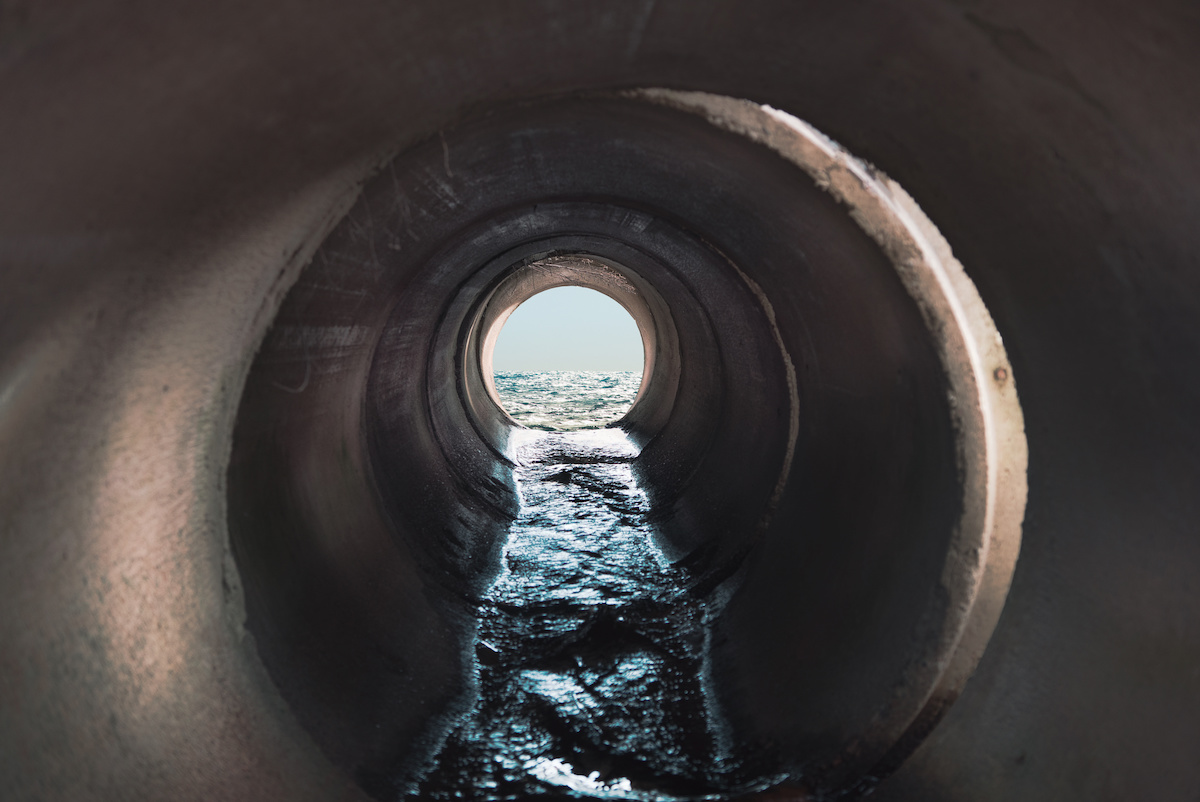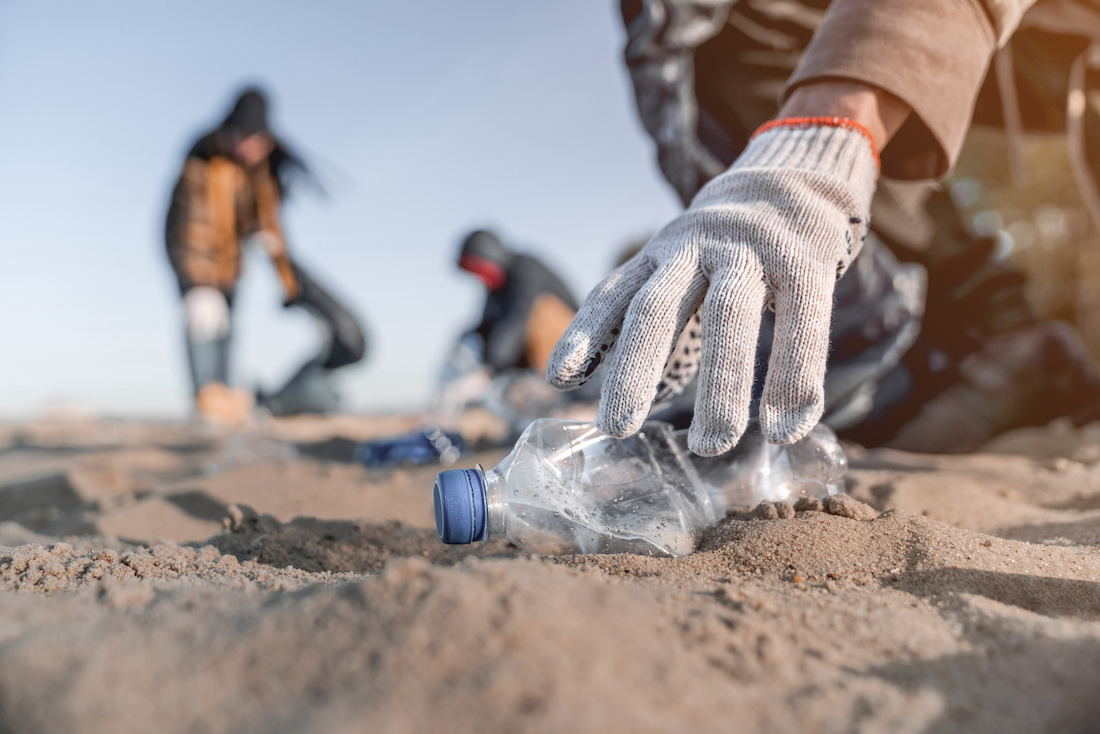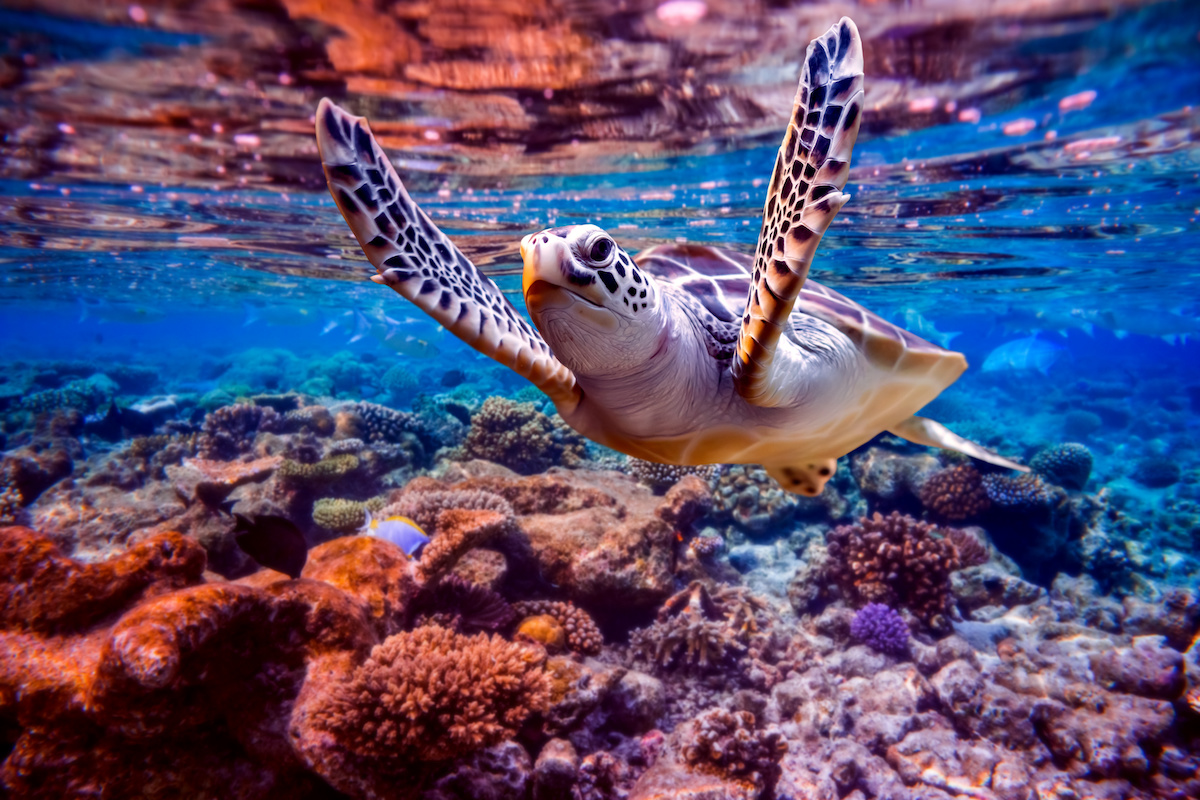We’ve been exploring the importance of marine water quality and water quality management in the UK on our blog, and wanted to turn our focus to ocean pollution in particular.
Here, we are keen to highlight the things we can do to help bring sea pollution to an end — both from an individual standpoint and on an organisational, governmental level. Let’s dive into some of the key steps we can take to protect our oceans.
1. Reduce plastic production & waste
Reducing plastic production and waste is one of the most important ways we can stop sea pollution. On an individual level, you can start by avoiding products containing microbeads and shopping plastic-consciously, opting for reusable products over single-use wherever possible, and recycling properly.
However, individual efforts alone are not enough to solve the problem. We also need legislation that discourages plastic waste, reduces plastic production, and improves waste management. The UK’s recent announcement of a ban on a range of single-use plastic products, for example, is a step in the right direction. More pressure on local authorities and governments is needed to take these vital steps — and fast.
2. Improve wastewater systems
We only need to look at very recent history to know that sewage pollution is a huge problem.
It’s become a worrying reality on our doorstep here in the UK, with 372,533 sewage releases being recorded in 2021. The systems currently in place simply cannot handle the waste of a booming population — London’s sewage system, for one, was built by the Victorians. Storm overflows are blamed when, in reality, there were no storms putting pressure on the systems in the summer of 2022.
Untreated wastewater contains a number of pollutants, including plastics, chemicals, and pollutants, which pose a risk to human and environmental health alike. Improving wastewater infrastructure is the only way forward, and when water companies document record profits, it is possible.

3. Use eco-friendly products
Using eco-friendly products can significantly reduce the amount of pollution entering our oceans. Here are some ways to use eco-friendly products to help reduce ocean pollution:
- Use reusable bags, water bottles, and containers: Opt for reusable options over single-use items – think cloth bags and stainless steel water bottles & containers.
- Choose natural cleaning products: Many traditional cleaning products contain harmful chemicals that harm our oceans. Luckily, there are plenty of eco-friendly options out there nowadays, made from natural and biodegradable ingredients.
- Buy sustainable seafood: Unsustainable fishing practices harm marine ecosystems and contribute to ocean pollution. Instead, opt for sustainably caught options that support responsible fishing practices.
- Use non-toxic health & beauty products: Many self-care products contain harmful chemicals that can be toxic to marine life. Choose natural and non-toxic products — the ocean & your body will thank you!
4. Reduce chemical pollution
One of the leading ocean pollutants comes in the form of chemical spillages and non-point pollution.
The latter is also referred to as runoff, and often occurs when soil is infiltrated with water, causing excess water (containing pollutants like pesticides) to flow into rivers and streams. Eventually, they reach the ocean. Runoff water carries all sorts of harmful toxins like fertilisers, pesticides, litter, and other soil contaminants.
One way to reduce the amount of harmful chemicals that enter the ocean is by regulating the use of said fertilisers, pesticides, and other chemicals that are commonly used in agriculture and landscaping.
On an individual level, we can challenge the cultural norms around, for example, having a perfectly-manicured lawn. In our own gardens, there really is no need to use toxic chemicals when we have access to harmless natural options. We can also keep a keen eye on the brands we buy from and their practices, policies, and promises. Are they committed to reducing their use of harmful chemicals and pollution?
Additionally, we can promote alternative methods of agriculture and landscaping to help to reduce the use of these harmful chemicals altogether. Shopping organic will reduce the demand for products from farms that rely heavily on these chemicals — not only will this attitude change benefit the natural environment, but your health as well.
5. Manage oil spills
Oil spills – like the recent occurrence at Poole harbour – can cause severe damage to marine ecosystems and are a significant contributor to ocean pollution.
It’s imperative that governments and industries alike take measures to prevent oil spills and respond quickly to contain and clean up any spills that do occur. Whether it’s investing in spill response technology, improving the safety standards for offshore drilling, or enforcing strict preventative regulations, much can be done to avoid oil spills.
6. Beach & river cleanups

Beach and river cleanups are some of the most direct and rewarding ways to fight sea pollution. Whether you attend them or organise them yourself, these cleanups not only remove plastic waste from the ocean but help raise awareness about the issue — in turn, inspiring others to take action.
You can also support organisations undertaking large-scale projects, like The Ocean Cleanup and Surfers Against Sewage.
7. Monitoring & measuring progress
How do we know what needs changing if we don’t have an accurate picture of where we stand? With UK water quality currently in a dismal state, it’s clear that ongoing monitoring will keep us on track.
Unfortunately, funding cuts to the Environment Agency have stripped away much of their capacity for monitoring and the surveillance of water companies. Liz Truss, who was in charge at DEFRA between 2014 and 2016 oversaw a £24m cut from a government grant for environmental protection.
Without adequate monitoring, we can’t possibly expect to reach the clean water targets set out by the Water Framework Directive. Water quality monitoring – on a local, regional, and national level – needs to be carried out by authorities, environmental agencies, and polluting industries in order to see real change.
Furthermore, we believe that more ambitious legal targets are possible. We need to see beyond the next 5 years, and beyond our individual catchment areas, in order to properly tackle sea pollution. With stronger targets, more public awareness, and more pressure on policymakers and industry, there’s a chance we can save our world’s blue spaces.
If you’re in need of water quality monitoring equipment, you can rely on Aquaread for accurate measurements — for a range of applications! And for more insights into the world of water, check out our blog.

